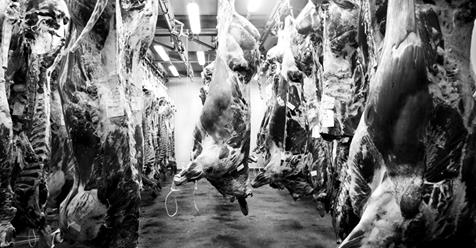Organization for Competitive Markets: New JBS Violations Highlight Weak Enforcement of Packers & Stockyards Act

posted December 12, 2018
Today, Organization for Competitive Markets received information indicating that the U.S. Department of Agriculture’s Agricultural Marketing Service (AMS) will be releasing the terms of a settlement agreement with JBS Swift over its gross mishandling of beef carcasses at its Grand Island, Nebraska facility, its largest beef processing plant in the U.S. This unconscionable practice led to probable underpayments to cattle producers in violation of the Packers & Stockyards Act.
In a soon to be released press statement, AMS states, “Beginning sometime prior to December 14, 2017, and continuing until on or about March 31, 2018, JBS Swift failed to properly record the weights, grades, and prices of carcasses accurately on accountings issued to sellers. The practice of failing to maintain the identify of beef carcasses purchased on a carcass weight basis at its Grand Island beef plant resulted in paying livestock sellers on inaccurate hot carcass weights and prices and is in violation of section of the Act and regulations.”
About a year ago, Nebraska cattle producer Steve Krajicek raised concerns with AMS over mishandling of his cattle. “Our yields have been lower than they are at other packing plants. Based the AMS findings in this case, I wouldn’t even know if JBS was paying me for my own cattle.”
Too often, smaller producers are required to sell their cattle on carcass weight, forcing them to carry all the risk of shipment including tissue shrinkage and injury to the animal, and then unreasonably having to trust that JBS weighs and grades the animal correctly. Larger producers are given the opportunity to sell on live weight at the point of sale, skirting these risks. The result is small producers are abused by the large packer as set out in this case by AMS.
This settlement follows a similar settlement agreement AMS reached with JBS in June of 2018 for failing to maintain its carcass monorail scales at its Cactus, Texas and Greeley, Colorado facilities resulting in cattle producers being inaccurately paid for their cattle.
In the June 2018 consent decision, JBS paid a $29,000 civil penalty. In this most recent consent decision, JBS has agreed to a $50,000 civil penalty. Unfortunately, these civil penalties dim in comparison with the amount of dollars stolen from cattle producers in a pattern of repeated violations of the Packers & Stockyards Act.
“It is like a thief stealing $5.00 and only being fined $1.00. Where is the incentive to stop stealing?” exclaimed Joe Maxwell, Executive Director of the Organization for Competitive Markets.
With USDA Secretary Sonny Perdue’s recent elimination of the Grain, Inspection, Packers & Stockyards Administration that was tasked with P&S Act enforcement, understaffed and under-resourced enforcers are ill-equipped to take on a global Goliath such as JBS. Further, Perdue’s withdrawal of the Farmer Fair Practices Rules leaves cattle producers with no recourse to recover their losses. OCM is currently in litigation against USDA in an effort to restore those rules.
“It is a national tragedy that farmers and ranchers are subjected to a marketplace where they are at the mercy of the packers who clearly have no moral compulsion to treat them fairly and a USDA Secretary that lets them get away with it. We’re in danger of losing our whole cattle industry in this situation,” concluded Maxwell.